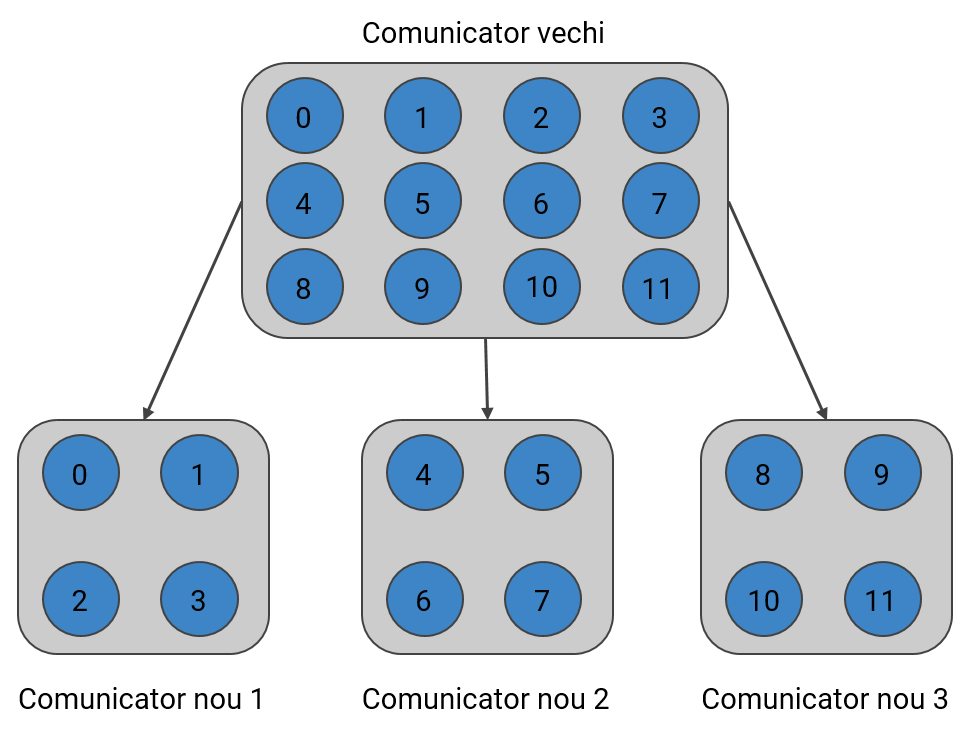Implementing a Distributed Program in MPI
#include "mpi.h"
#include <stdio.h>
#include <stdlib.h>
#define MASTER 0
int main (int argc, char *argv[]) {
int numtasks, rank, len;
char hostname[MPI_MAX_PROCESSOR_NAME];
MPI_Init(&argc, &argv);
MPI_Comm_size(MPI_COMM_WORLD, &numtasks);
MPI_Comm_rank(MPI_COMM_WORLD,&rank);
MPI_Get_processor_name(hostname, &len);
if (rank == MASTER)
printf("MASTER: Number of MPI tasks is: %d\n",numtasks);
else
printf("WORKER: Rank: %d\n",rank);
MPI_Finalize();
}
A communicator (MPI_Comm) represents a group of processes that communicate with each other. MPI_COMM_WORLD represents the default communicator, to which all processes belong.
Functions:
- MPI_Init - initializes the MPI program, creating the context in which processes run. Command-line arguments are passed to the context for process execution.
- MPI_Comm_size - a function that determines the number of processes (numtasks) running within the communicator (usually MPI_COMM_WORLD).
- MPI_Comm_rank - a function that determines the identifier (rank) of the current process within the communicator.
- MPI_Get_processor_name - determines the processor's name.
- MPI_Finalize - triggers the termination of the MPI program.
During data exchange between processes, it is always necessary to specify their type. In MPI, the MPI_Datatype enum is used, which maps to data types in C/C++, as shown in the table below:
| MPI_Datatype | Equivalent in C/C++ |
|---|---|
| MPI_INT | int |
| MPI_LONG | long |
| MPI_CHAR | char |
| MPI_FLOAT | float |
| MPI_DOUBLE | double |
We can create communicators from another communicator using the MPI_Comm_split function, which divides a communicator into multiple smaller communicators. The function's signature is as follows:
int MPI_Comm_split(MPI_Comm comm, int color, int key, MPI_Comm * newcomm)
Where:
- comm - the communicator being split
- color - an identifier of the new communicator, to which a process belongs (usually rank_old_process / size_new_communicator)
- key - the new rank of the process within the new communicator (usually rank_old_process % size_new_communicator)
- newcomm - the newly formed communicator
Below is an illustration of how MPI_Comm_split works:
